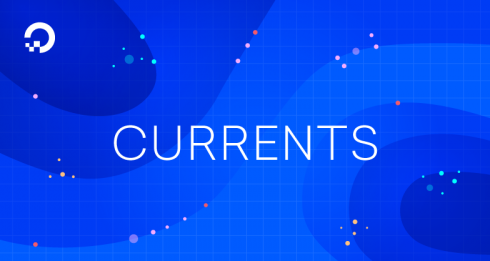
Continuous integration is becoming more popular than continuous delivery in large-scale organizations. A recent report by DigitalOcean found 45 percent of respondents reported using CD compared to 58 percent who reported using CI.
Forty-three percent of respondents who reported they were not using a CI or CD process stated they planned to use CI/CD, while 26 percent did not believe a CI/CD solution would be beneficial to their company.
Those who are not using CI or CD stated that they didn’t find it necessary for their workflow, it is too complicating, and setting up an initial build system is too time-consuming. The respondents who are using or plan to use a CI or CD solution said the benefits include being able to quickly review and deploy new code, the ability to work together, reduced personal workloads, and the ability to meet customer demands more easily.
The DigitalOcean Currents survey is based on 5,993 software developer responses.
The report found as companies grow in size, they are more likely to use CI, with two-thirds of companies that have more than 1,000 employees stating they use CI. Organizations with more than 100 employees also reported CI and CD is becoming standard practice.
“While only 45% of developers in organizations with five employees or less are using continuous integration, and only 35% are using continuous delivery (CD), developers report the likelihood of using these technologies increases with the size of the organization. This is somewhat intuitive as many of the benefits of these methods provide ways for groups of developers to work together. In large organizations with over 1,000 employees, 68% of developers report using continuous integration and 52% are using continuous delivery,” the company wrote in a blog post.
A surprising result of the study is that despite the advances artificial intelligence and machine learning can bring to a development workflow, 74 percent of developers are not using AI or ML. However, 81 percent of respondents indicated they want to learn AI. The top three advancements respondents are most looking forward to in 2018 are automated machine learning (46%), sentiment analysis and natural language processing (22%), and hybrid deep learning models (21%). In addition, the report found Google TensorFlow was the most popular AI/ML platform.
The report also covered current events, which included the repeal of the Federal Communications Commission’s (FCC) rules governing net neutrality. Last December, the FCC voted to end net neutrality, which according to DigitalOcean means less freedom on the Internet. According to the survey, 83 percent of U.S. respondents and 61 percent outside the U.S. are against the repeal because it would take away the openness and freedom of the Internet. However, 37 percent of respondents indicated they did not take action against the repeal while 30 percent signed the petition and 23 percent discussed the subject with friends.
The report also provided a mix of results regarding the possibility of net neutrality affecting the workplace. Thirty-four percent of respondents believe it will increase technical and business expenses, 32 percent believe it will inhibit the ability to compete with well-established companies, and 23 percent think it will slow down the development and deployment process. Others felt it will remove restrictions from company’s work and decrease business expenses.
The report also looked at the upcoming General Data Protection Regulation, and found a majority of developers and companies are still confused about what the regulation means to them. Only 29 percent of developers are currently taking steps to prepare for the legislation while 37 percent said no and 34 percent are unsure how their company is even preparing for the legislation.
Additionally, 33 percent of respondents indicated they will spend 11-50 hours to prepare for GDPR. Thirteen percent said they will dedicate 51-100 hours to prepare while 34 percent will dedicate less than 10 hours.
Other findings of the report included 37 percent of respondents believing there is an increased sense of community among developers when it comes to open source, 30 percent recognize open source brings better code quality and 21 percent feel open source provides fast delivery of software. In addition, despite the media frenzy over the Spectre/Meltdown vulnerabilities, 71 percent of respondents said their day-to-day work was not impacted by the bugs.






